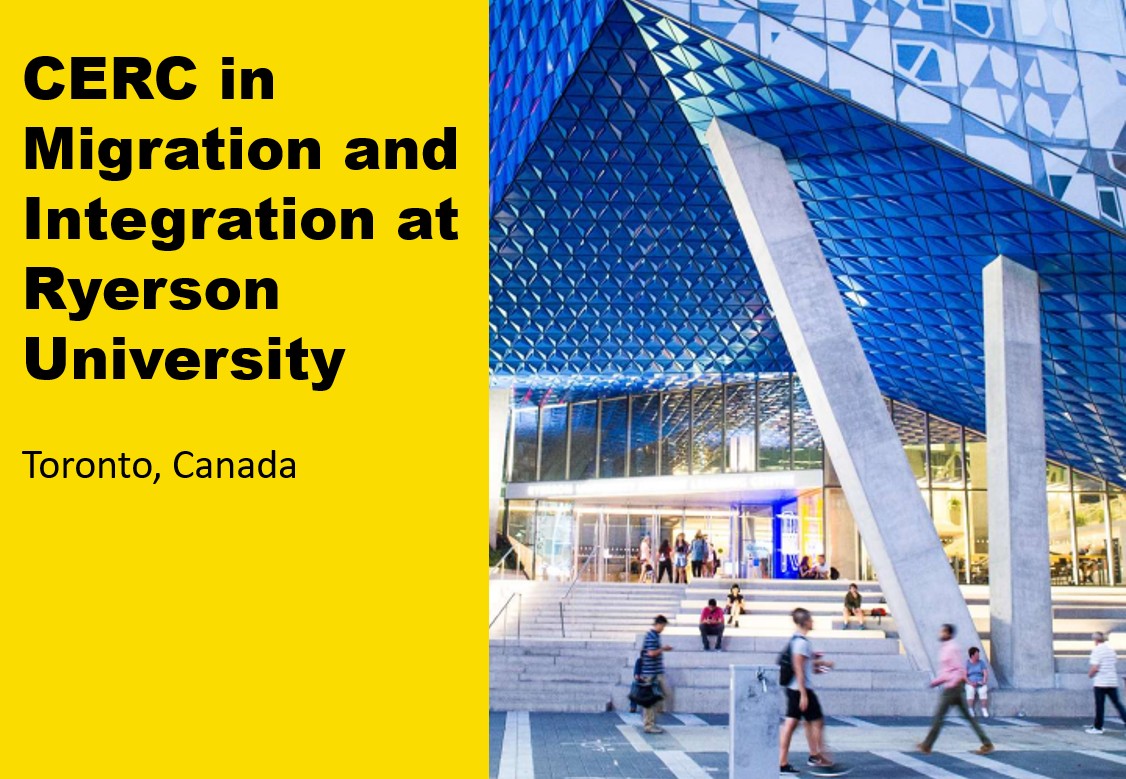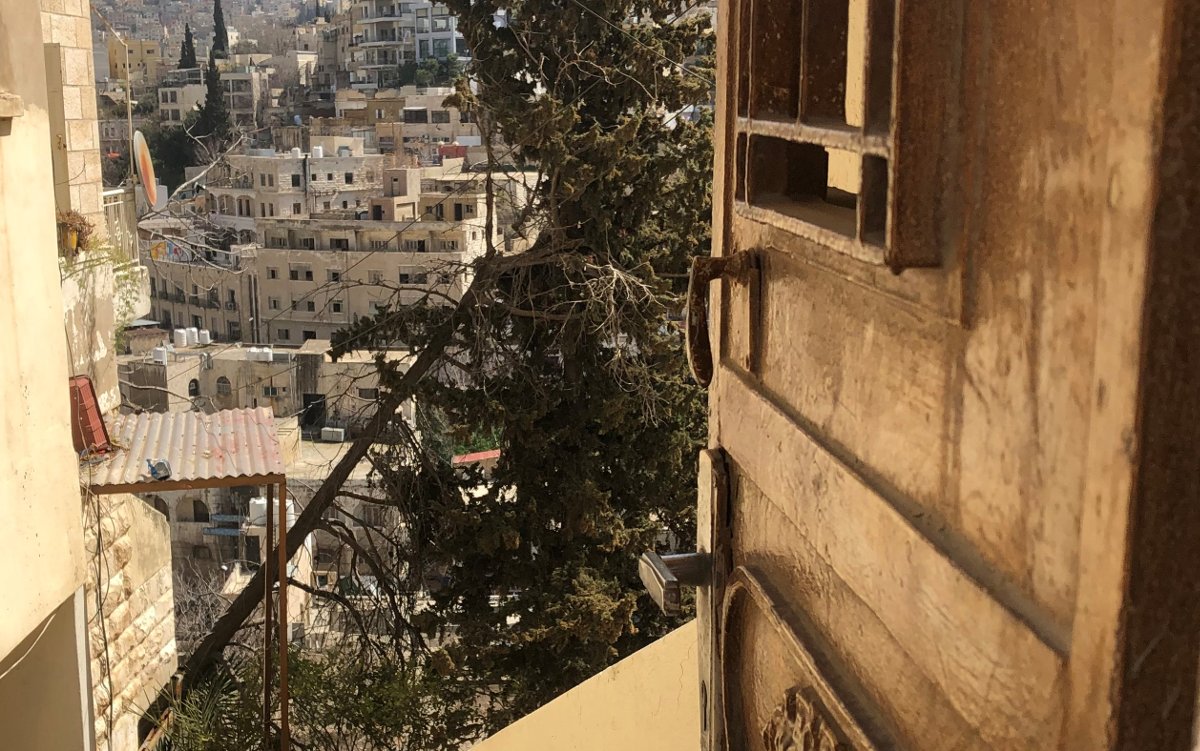The “Vitrine” is a section that will wrap up every Bulletin issue moving forward. This is a space dedicated for any member institute or people from the IMISCOE Network who are interested in sharing what they have been up to lately with the community. If you or your institute have a project you’re leading or that you are a part of, and what to be featured here, please send a brief description (max 100 words) and a link to allow the readers to further their curiosity to
The first issue is glad to showcase a variety of works from our vast network of Member Institutes. Here you’ll find projects from the Centre of Migration, Policy and Society, Universidad Pontificia Comillas , Ryerson University, Max Planck Institute, Norwegian Research Institute, Maastricht Centre for Citizenship, Migration and Development, Institute for Transnational and Euregional cross-Border cooperation and Mobility, ICMPD and ISMU:
Refugia
What does social science fiction, utopianism, pragmatism, and innovative social theory, have to do with one of the biggest dilemmas of our age – how to solve the problems arising from mass displacement. As early versions of the solution proposed by Nicholas Van Hear of COMPAS and Robin Cohen, filtered out, their vision of a new, networked, transnational archipelago, called Refugia, was met with scepticism by some established refugee scholars. Others were more intrigued, more open-minded, or perhaps just holding their fire until this book was published. Read it and craft your own critique!
Learn more at:
https://www.compas.ox.ac.uk/2020/new-publication-refugia-a-new-solution-for-displacement/

IMMERSE: H2020 European Union
“Cartography of the integration of refugees and migrant children in schools and other experiential environments in Europe”.
The IMMERSE project identifies the main agents interested in the social and educational integration of migrant children. Its main objective is to define a new integrated methodology to generate and monitor quantitative and qualitative data and develop a set of recommendations on the integration of refugees and migrant children in Europe. ZABALA participates in the project leading the activities related to social awareness and stakeholder engagement.
Learn more at: https://twitter.com/IMMERSEComillas and https://www.immerse-h2020.eu/
FRA - FRANET CONTRACTO for the Fundamental Rights Agency
FRA Data collection & research services. EU Human Rights Agency European Union Agency for Fundamental Rights.
The European Union created the Fundamental Rights Agency (FRA) with the aim of providing independent Member States and EU institutions with assistance and advice, based on studies, on fundamental rights. The FRA is an independent body of the EU, financed with the budget of the Union, of which the IUEM is its representation in Spain.
Learn more at: https://fra.europa.eu/en
CERC: Canada Excellence Research Chair in Migration and Integration
Ryerson University in Toronto, Canada, a new member of IMISCOE, has recently launched a $21 million, seven-year initiative in migration and integration, through funding provided by the Government of Canada and the University. The Canada Excellence Research Chair in Migration and Integration, under the leadership of Prof. Anna Triandafyllidou, will augment the growing cluster of migration research underway at this University. With an international lens, and while paying special attention to Canadian realities, the CERC will engage in comparative research with and among other countries in various global regions. Our focus is to produce innovative and practical knowledge on the links between migration and post-migration processes, forced and voluntary mobility, internal and international migration, and the role of countries of origin and transit. The CERC aims to be a Canadian-based convener of important dialogue among academics, stakeholders and civil society. In February, we host the inaugural conference Migration 2030: Challenges and Opportunities for Canada, to launch the CERC into a critical conversation on the outlook for migration for the next decade.
Learn more at: https://www.ryerson.ca/cerc-migration/

ZOMiDi
ZOMiDi investigates how and why civil society organizations change in response to migration and diversity. Such organizations are key players in processes of social self-organization and participation; they are indispensable for societal integration in liberal democracies. While we know that migration processes transform host-societies, we are equally aware of the persistence of organizations and related processes of exclusion and discrimination. The project investigates this tension while focusing on the conditions and the actors promoting more openness, diversity and participation. The project cooperates with four organizations, for which difference and participation are constitutive since they represent particular, potentially disadvantaged population groups.
Learn more at: https://www.mmg.mpg.de/226525/zomidi

MARE, European management of migration and refugees
MARE is a research project funded by the Norwegian Research Council, that asks how European policy to regulate migration and protect migration affects:
- Access to protection, education and sustainable livelihoods for refugee populations.
- The future mobility of refugees (repatriation, integration, secondary movements).
- Political developments and political stability in host communities.
European governments increasingly engage in attempts to manage migration on other continents, through political, economic, humanitarian or military interventions. A central aim of these policies has been to keep the migrants from reaching the European continent. Simultaneously, in countries neighbouring conflict zones, governments struggle to balance the needs of refugees and migrants, the demands of the local population (to protect land rights and labour markets), and increased demands from the international community to prevent the migrants from moving on. In this tension between local and international interests, refugee protection systems are developed, and migrants devise their livelihood strategies, determining if they should stay, repatriate or move on to other destinations. The project looks at refugee management and mobility in four areas; Amman in Jordan, the Bequaa Valley in Lebanon, Agades in Niger and Nakivale refugee camp in Uganda. The project is lead by Dr Guri Tyldum, at Fafo and will run until 2021
Learn more at: https://www.fafo.no/index.php/en/projects/current-projects/item/european-management-of-migration-and-refugees?category_id=170

ITEM, Institute for Transnational and Euregional cross-Border cooperation and Mobility
ITEM is a centre of expertise that conducts scientific research into cross-border issues in the field of mobility and society. More specifically, ITEM is involved in fundamental and applied research, analysing border effects, supporting test procedures, promoting international scientific and political discussion, advising and exchanging information, organising conferences, training sessions and workshops and making its knowledge accessible via the ITEM cross-border portal.
By means of scientific research results, ITEM contributes to the visibility of border effects for policymakers and politicians and supports from the scientific point of view front offices that are set up to inform citizens about society, working and living across borders. The centre of expertise has the function of 'scientific backbone'.
ITEM deals with range from cross-border pension schemes, social security and taxation to tackling language barriers on the Euregional work floor and diploma recognition.
ITEM is currently conducting several studies related to cross-border living, working and society. This varies from the annual border effect report, in which the effects of certain laws and regulations on border regions are addressed, to research assignments, PhD research and case studies.
ITEM makes a scientific contribution in the area of cross-border living, working and society, more specifically in the area of for instance cross-border:
- Pension
- Tax
- Social Security
- Recognition of qualifications
- Culture & Language
- Border Effects
Learn more at: https://www.maastrichtuniversity.nl/item and https://itemcrossborderportal.maastrichtuniversity.nl/p/homepage
FIMAS+YOUTH - Processes of labour market integration of young refugees in Austria (Austrian Foreign Ministry, 2020 - 2021)
Based on the surveys FIMAS, FIMAS+INTEGRATION, and FIMAS+INTEGRATION 2, the project FIMAS+YOUTH continues the fourth wave of the Austrian longitudinal study on integration trajectories of refugees. The aim of the FIMAS project series is to follow and present the integration processes of refugees and beneficiaries of subsidiary protection. The focus of the project is on labour market integration and those factors that facilitate or hamper it. The central research focus of this year’s survey is to examine the situation of young people with regard to their chances of labour market integration. Consequently, the knowledge about the factors contributing to a successful and sustainable labour market participation will be broadened.
The overall sample comprises a panel component following the first respondents from 2016/2017 (FIMAS), 2017/2018 (FIMAS+INTEGRATION) and 2018/2019 (FIMAS+INTEGRATION2) as well as a refresher sample. The survey will include 1,600 recognized refugees and beneficiaries of subsidiary protection of working age from Syria, Afghanistan, Iraq and Iran, of whom about half will be young adults aged 15 to 25.
Learn more at: http://research.icmpd.org/projects/integration-non-discrimination/fimas-youth/
At a crossroads: Unaccompanied and separated children in their transition to adulthood in Italy
Between 2014 and 2018 over 70 thousand unaccompanied and separated children (UASC) arrived in Italy by the central Mediterranean route, 90% between 15-17 years old. The significant presence in Italy of UASC and the growing number of former UASC who turned 18 (around 60.000 in the last 5 years) have highlighted the need to better understand the factors that affect UASC transition pathway to adulthood in Italy, those facilitating or obstructing it, both at individual and structural levels.
This is the core focus of the report “At a crossroads. Unaccompanied and separated children in their transition to adulthood in Italy”, commissioned by UNICEF, UNHCR e OIM and carried out by Fondazione ISMU, in collaboration with Università degli Studi di Catania and Università degli Studi Roma Tre.
The research adopted a participatory biographical approach– focused on the right of children and adolescents to play an active role in issues of concern to them – and featured as interviewers a group of former UASC, which was conducive to a peer-to-peer interview environment. This approach has put 185 UASC and former UASC (boys and girls) in 3 Regions of Italy (Sicily, Latium, Lombardy), firmly in control with their different stories, subjective challenges, structural obstacles and support factors. A further 46 interviews were carried out with institutional stakeholders, social workers and volunteer guardians who work in close contact with these boys and girls.
Learn more at:
https://www.ismu.org/wp-content/uploads/2018/10/191108_Report_SHORT_ING.pdf

